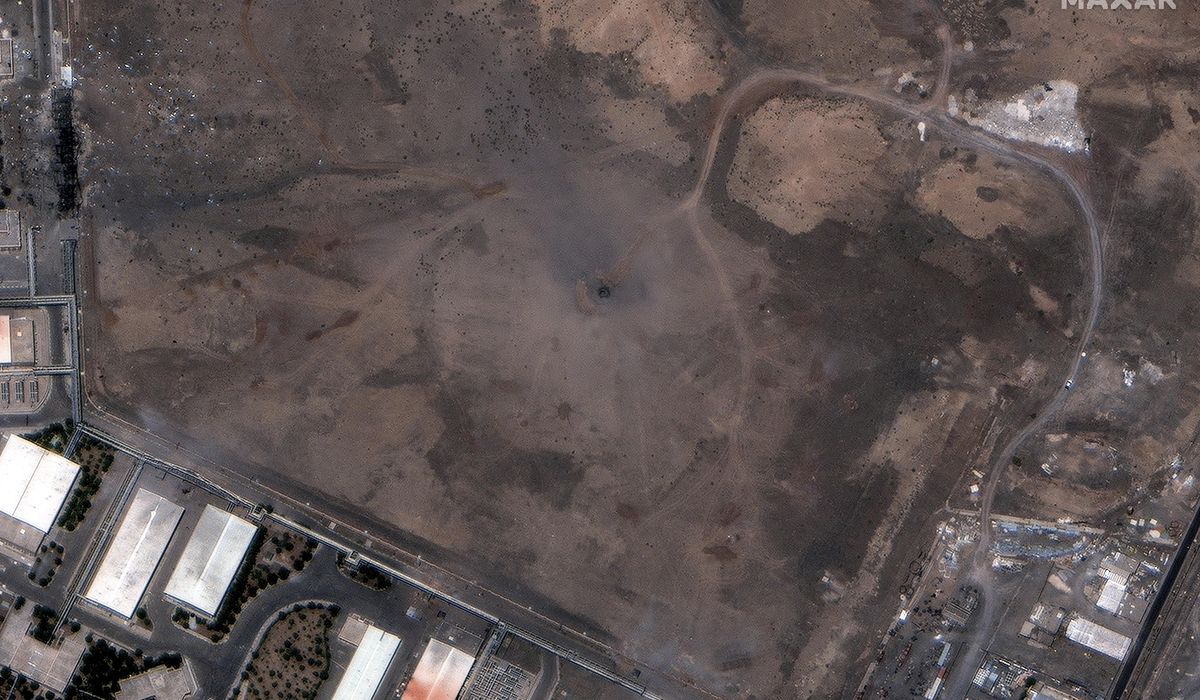


Top national security officials briefed senators Thursday about the bombings on three of Iran’s key nuclear facilities, but it did little to settle the debate over just how successful the attacks were in quelling Iran’s nuclear ability.
Republicans maintain that the bombings were successful, aligning themselves with President Trump, who repeatedly said the strikes caused “total obliteration,” while Democrats say there are more questions to be answered.
Senators received the briefing from Secretary of State Marco Rubio, Defense Secretary Pete Hegseth, CIA Director John Radcliffe, and Joint Chiefs of Staff Chairman Gen. Dan Caine, after it was originally scheduled for Tuesday.
It was postponed much to the ire of Democrats who were demanding answers on the bombs the president sent to Iran last weekend. The House is set to have its briefing on Friday.
Mr. Trump has said the bombs dropped last weekend on facilities at the three sites — Fordo, Natanz, and Isfahan — were successful. An early intel report leaked to news outlets said the strikes might not have done as much as the president claimed and might only have set Iran’s nuclear abilities back by months. The assessment by the Defense Intelligence Agency was preliminary and described as “low confidence.”
The White House and Republicans in Congress have heavily pushed back on the initial report, bashing the reporters who cited it and launching an investigation to see who was behind the leak.
Sen. Tom Cotton, Arkansas Republican, and chair of the Senate Intelligence Committee, said he was “confident that the mission was an extraordinary success.”
“If you look at the whole span of what happened over 12 days, the targeting of Iran’s nuclear scientists, the underground bunkers, the centrifuges, the centrifuge manufacturing sites, the gas and mental convergence sites, that’s why we’re confident,” he told reporters after the briefing.
He said the strikes cause “catastrophic damage to Iran’s nuclear program,” though he also cautioned that “that’s not to say they won’t try to reconstitute it at some time.”
When asked whether Democrats were also happy with what was shared, Mr. Cotton said they “should be satisfied.”
“I think the answers they got in there should be totally satisfactory,” he said.
Sen. Michael Rounds, South Dakota Republican, brushed off a question of whether the facilities were totally obliterated, saying, “They always use different language when trying to be exacting.”
“I would simply say No. 1, the mission accomplished exactly what they intended to accomplish,” he said. “The guys hit the targets as planned. The munitions worked exactly as planned and the results were as expected.”
Democrats argued there is still more information needed about how much damage was done.
“There is no reason for complacency, maybe not even comfort, because there’s no evidence that Iran is abandoning its hope and ambition to be a nuclear power and there’s lots of reason to think that some of their enriched uranium and perhaps centrifuges can be reconstituted,” said Sen. Richard Blumenthal, Connecticut Democrat.
He said the briefing was “generally constructive, certainly challenging at points, but I think [was a] really positive effort to get at the truth.”
Sen. Chris Murphy, Connecticut Democrat, said it still appears that Iran’s nuclear program has only been set back by a “handful of months.”
“There’s no doubt there was damage done to the program, but the allegations that we have obliterated their program just don’t seem to stand up to reason,” he said. “I just do not think the president was telling the truth when he said this program was obliterated.”
He said the only path forward is diplomacy.
“You cannot bomb knowledge out of existence — no matter how many scientists you kill,” Mr. Murphy said. “There are still people in Iran who know how to work centrifuges. And if they still have enriched uranium and they still have the ability to use centrifuges, then you’re not setting back the program by years. You’re setting back the program by months.”
Sen. John Hoeven, North Dakota Republican, pointed to Mr. Radcliffe’s CIA report when he said to him it looks like Iran’s nuclear program has been pushed back by a year or two. He argued that it wasn’t just facilities damaged, but the personnel involved as well.
“Here’s another really good point they made – given that between Israel and United States, we took all this out. Would you just rebuild it? Because then it could be just taken out again,” he said.
Operation Midnight Hammer included seven B-2 Spirit bombers that flew east from Whiteman Air Force Base in Missouri to Iran, while another group was sent over the Pacific as decoys. The bombers dropped 14 GBU-57 “Massive Ordnance Penetrator” weapons during the mission and are the only aircraft that could carry the 30,000-pound bomb.
Gen. Caine said at a briefing at the Pentagon early Thursday that the weapons dropped were designed with this mission in mind and were more than 15 years in the making after officials were briefed about a major construction project in the mountains of Iran.
The weapons were designed, planned, and delivered to ensure they achieved the effects in the mission space,” he said.
He said that “all six weapons at Fordow went exactly where they intended to go.”
Lindsey McPherson contributed to this report.
• Mallory Wilson can be reached at mwilson@washingtontimes.com.
